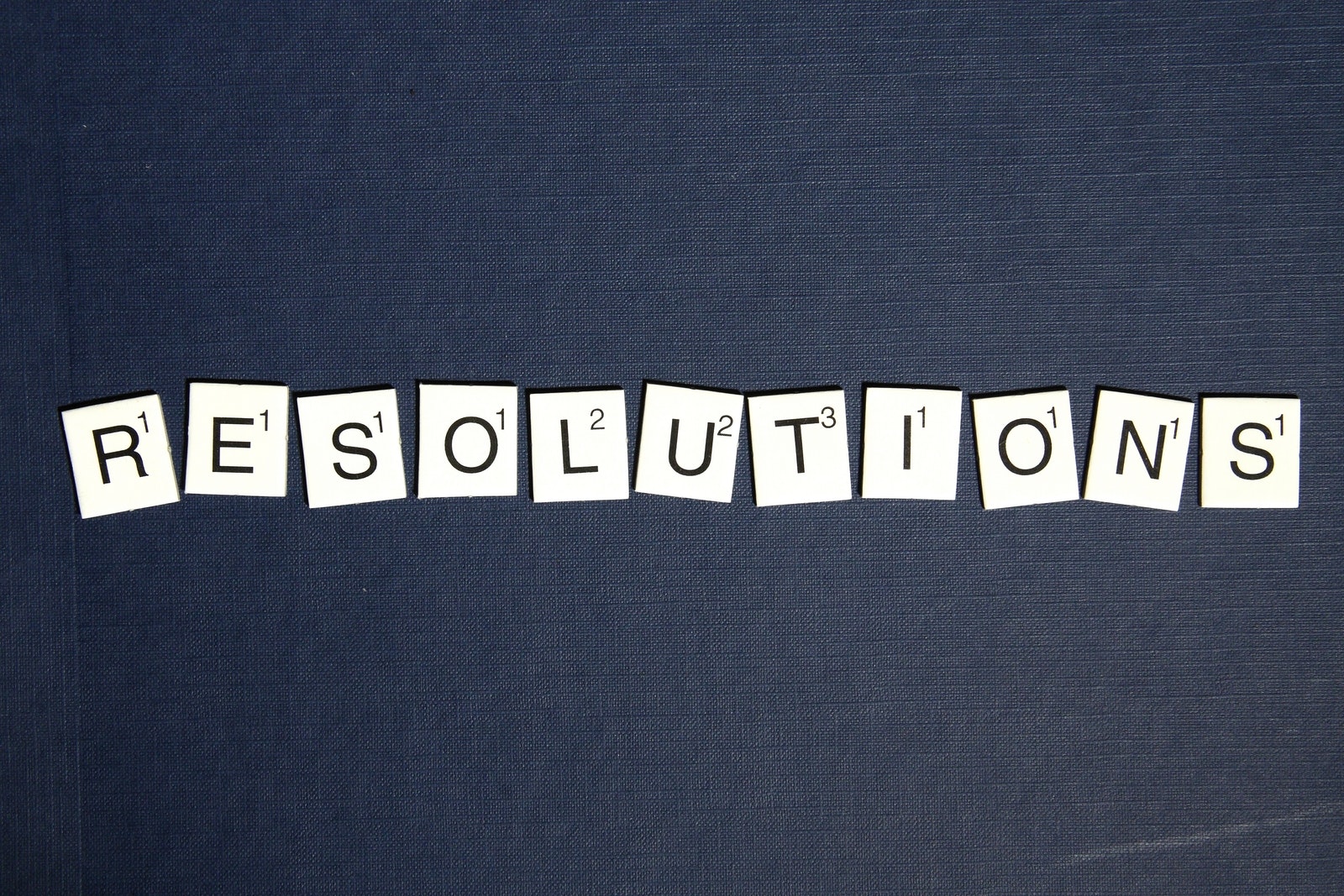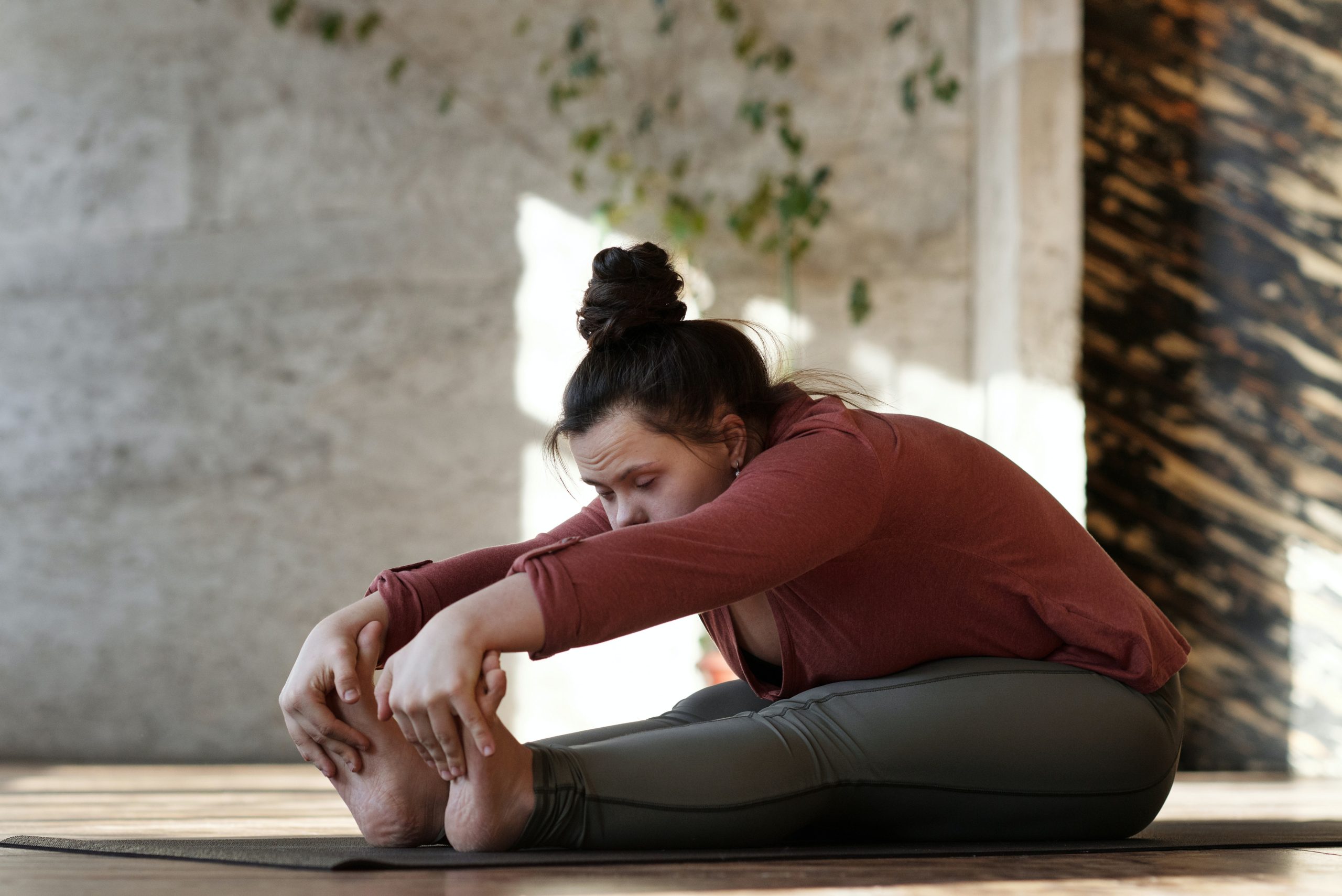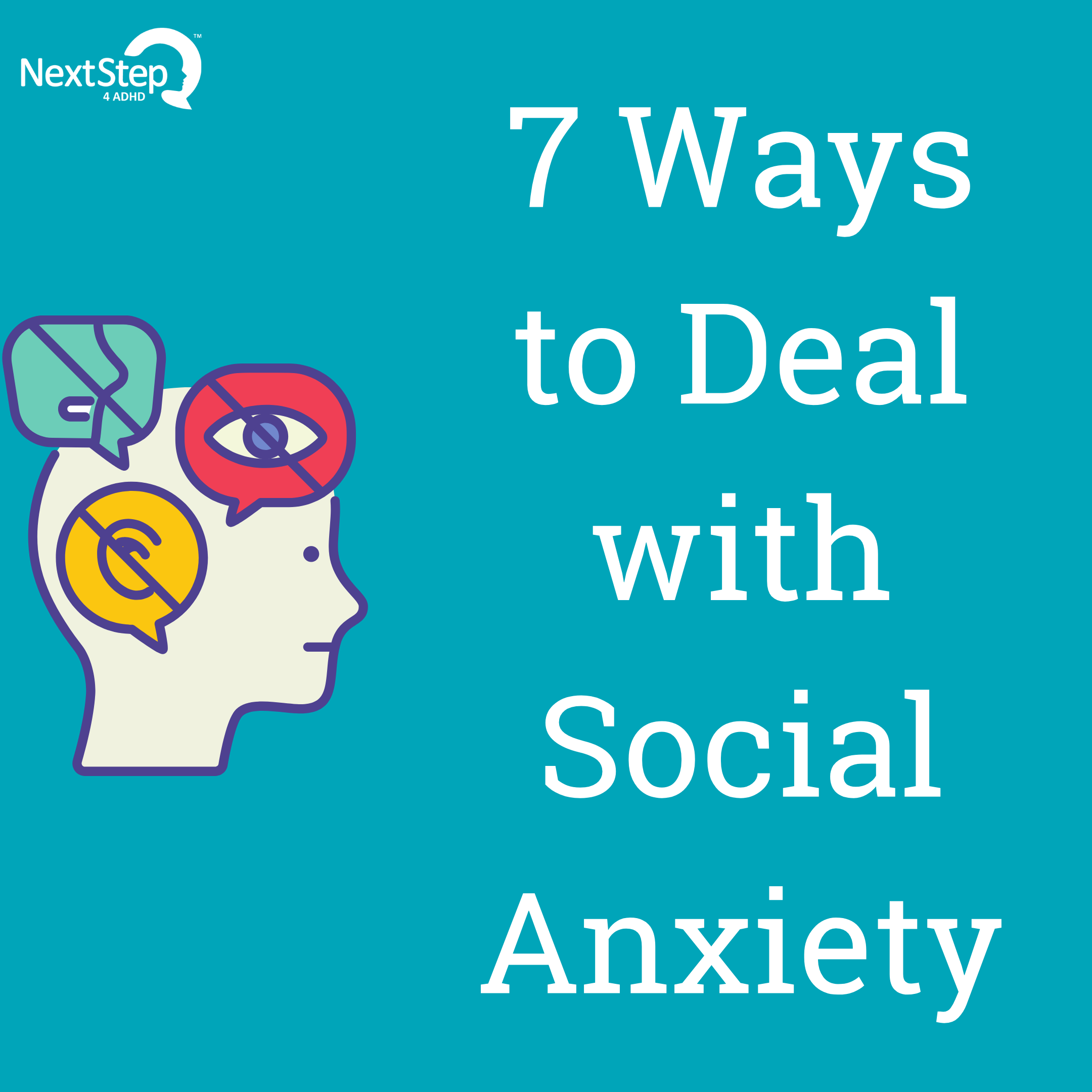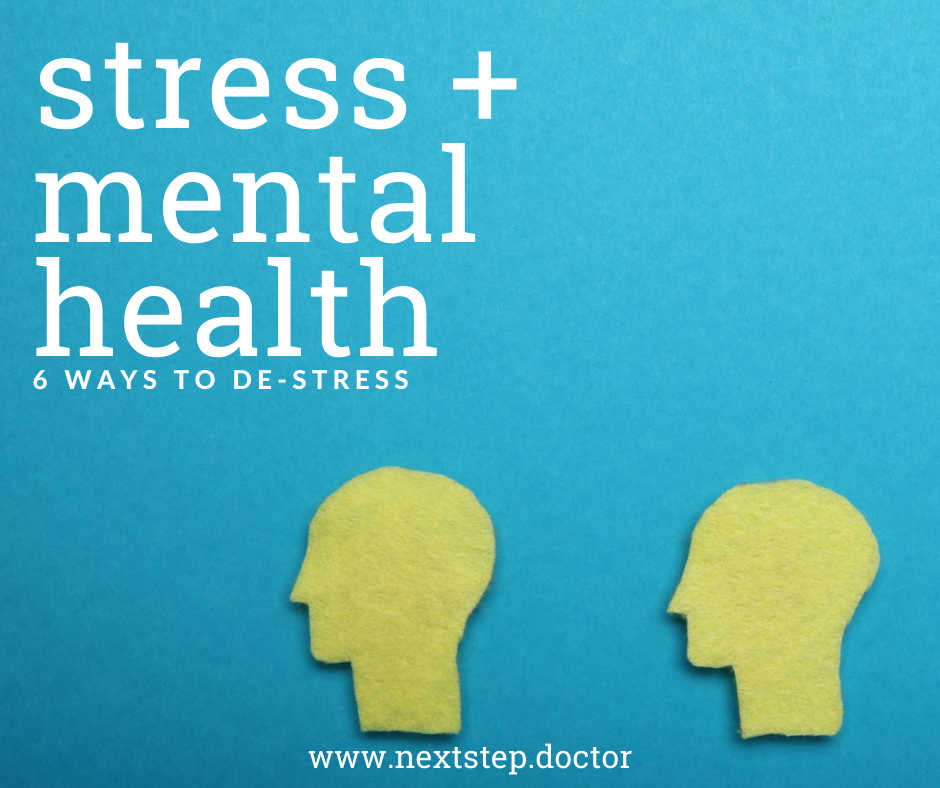
Fear and Phobia: What’s the Difference?
A phobia is an aberrant or extreme fear of something. In some cases, the fear is so intense that it interrupts normal activities.
Learn More
9 New Year’s Resolutions that Put Your Mental Health First
2021 is right around the corner … finally! Are you making resolutions this year? Here are nine New Year’s Resolutions that put your mental health first.
Catch Your Zzz’s
It’s no secret that getting enough sleep supports your physical well-being, but it also affects your mental health too. Insufficient sleep can increase your risk of a number of unfavorable conditions, including heart disease, type 2 diabetes, and depression. Some psychiatric conditions (including bipolar disorder, anxiety disorders, and depression) can cause sleep problems. In addition, insufficient sleep can even exacerbate the symptoms of many mental conditions including depression, anxiety disorders, and bipolar disorder.
So how much sleep do you need? It depends on your age. The National Sleep Foundation suggests the following:
| Your Age | Recommended Hours of Sleep from the NSF | |
|---|---|---|
| Newborn | 0–3 months | 14–17 hours |
| Infant | 4–12 months | 12–16 hours |
| Toddler | 1–2 years | 11–14 hours |
| Preschool | 3–5 years | 10–13 hours |
| Elementary School Age | 6–12 years | 9–12 hours |
| Teen | 13–18 years | 8–10 |
| Adult | 18–60 years | 7–9 hours |
| 61–64 years | 7–9 hours | |
| 65 years and older | 7–8 hours | |
If you make “practice better sleep hygiene” as one of your New Year’s resolutions, here are a few tips you can use to help you accomplish this:
- Try to go to bed at the same time every night
- Avoid blue lights for 1-2 hours before bed (You can learn more about warm lights in this post: Do Warm Lights Help You Sleep Better?)
- Sleep in a cool, dark room (cool refers to a few degrees cooler than room temperature)
- Exercise during the day
- Spend some time in the sunshine (it helps to reset your circadian rhythm)
Exercise More

Exercise not only helps you sleep better at night, but it also supports your mental health in other ways too. Studies show that aerobic exercises help to reduce symptoms of anxiety and depression. Exercise also:
- Boosts your mood
- Reduces stress
- Reduces the likelihood of social withdrawal
- Boosts self-confidence
Examples of aerobic exercise include running, jogging, dancing, walking, hiking, swimming, and playing tennis.
If you make “exercise more” as your resolution, remember that exercise regimens don’t have to be arduous. There are plenty of fun ways to add more physical activity into your daily routine. Even walking your dog an extra 10 minutes can add up over time.
Find a New Hobby
Did you know that hobbies are good for your mental health? According to the Australian Government Health Department, hobbies can boost self-confidence, promote feelings of relaxation, reduce stress, and improve overall happiness.
Here are a few examples of popular hobbies:
- Sports and exercise
- Music
- Art, including drawing, sculpting, painting
- Knitting and crocheting
- Baking
- Reading
- Journaling
- Gardening
- Fishing
You don’t need to be an expert to participate in a hobby. It’s about spending time doing an activity you enjoy.
Meditate
According to Mental Health America, meditating is great for your mental health. It can reduce stress, reduce the symptoms of anxiety and depression, and even help lessen chronic pain.
If “meditate more” is your resolution, you can find many ways to include more meditations into your weekly routine:
- Apps like Headspace
- Books
- Online guided meditations
Get a Planner
Getting organized can help you organize thoughts and reduce anxiety from last-minute scrambling or missed appointments. Keeping a planner can also support your mental health because you can stay on top of appointments, medication schedules, etc. Using a planner (either paper or through an app) can help you stay organized when your life — and health — feel overwhelming.
Volunteer
Did you know that volunteering also supports your mental health? According to the Mayo Clinic Health System, volunteering decreases the risk of depression.
If “volunteer more” is one of your New Year’s resolutions this year, you don’t even have to leave home. Here is a list of 20+ virtual volunteer opportunities.
Get Back to Nature

Spending time in nature can also support your mental health. Sunshine and fresh air can reset your circadian rhythm, which helps you get enough sleep. The experts at Harvard suggest that even 20 minutes spent outside can make a big difference.
If “spend time in nature” is one of your resolutions, read this article to explore a few ideas for spending time outside.
Develop an Attitude of Gratitude
Giving thanks and cultivating an attitude of gratitude can increase your happiness, according to the experts at Harvard.
If “be more thankful” is one of your New Year’s resolutions, you can boost your gratitude by writing more thank you notes, meditating, and keeping a gratitude journal (and re-reading on days you feel blue).
How to Keep a Gratitude Journal (for You and Your Kids!)
Keeping a gratitude journal is a great way to combat anxious thoughts. In fact, writing in a gratitude journal is shown to improve emotional resilience and reduce stress. There are many ways to keep a gratitude journal, but here are some tips:
- Journal first thing in the morning to start the day on a positive note
- End the day with a quick reflection about things you were grateful for over the course of the day
- If your child can’t write yet, she or he can draw pictures instead
You can download our free printable Gratitude Journal. Print out the journal and let your child explore the concept of gratitude. With 50+ pages, your child will have nearly two months of journaling!
Practice More Positive Self-Talk
How you talk to yourself matters, and incorporating more positive self-talk can make a big difference.
If “practice more positive self-talk” is one of your New Year’s resolutions, here are ten to get you started:
- I am capable and strong.
- Attempting to do X took courage, and I am proud of myself for trying.
- Even though this wasn’t the outcome I anticipated, I learned a lot about myself during this process.
- I am proud of how far I have already come even if I still have a ways to go.
- I can get through this.
- Tomorrow is another opportunity to try again, and I can utilize the lessons I learned from today.
- I will do my best.
- I can’t control what other people say, do, or think, but I can control my thoughts, words, and actions.
- This is an opportunity for me to try a new way to do X.
- I am learning from this situation, and I can grow as a person.
The Best New Year’s Resolution: Ask for Help When You Need It
Even with all of these resolutions, it’s not always enough. The best thing you can to do support your mental health is to ask for help if you need it. As a multidisciplinary practice, we can support a variety of mental health conditions with therapy, medication, lifestyle changes, coaching, and more.
Here at Next Step 2 Mental Health, we provide comprehensive mental health care for adults (and children too!). We’re just a call or click away. Call 502-339-2442 or send us a message to request more information.
Learn More
5 Tips for Safeguarding Your Mental Health This Thanksgiving
Even though Thanksgiving is regarded as a time of togetherness, gratitude, and joy, there are many reasons why the holidays may be anything but bliss. This year in particular may look a little different than previous Thanksgivings, especially if quarantines and travel restrictions prevent you from gathering as you normally would. In addition to the unique challenges of 2020, holidays can be tough for another reason: holiday blues and added stress. According to a survey conducted by the American Psychological Association (APA), almost 38% of individuals polled listed stress as the #1 reason their mental wellness dipped during the holiday season.
Here are Next Step 2 Mental Health, our team of providers is here to support your mental health — no matter what season or holiday we approach. In this article, we’ll explore five ways for you to safeguard your mental health this Thanksgiving.
1. Prioritize sleep
If you’re hosting Thanksgiving, you might be busy cleaning, decorating, and planning. However, don’t let the excitement and busy-ness of the day prevent you from getting enough sleep. Constantly running on not enough sleep can impact your mental and physical well-being. Specifically, research links sleep deprivation with increased rates of insomnia as well as increased irritability.
WHAT TO DO: Aim for 7-9 hours of sleep in a cool, dark room. Avoid using any blue lights (e.g., TV, tablets, phone) for 1-2 hours before bed. You can learn more about the effects of blue and warm lights on your sleep in this article: Do Warm-Colored Lights Help You Sleep Better?
2. Stick with your normal routine
For individuals with ADHD, sticking with your normal routine each day is essential. However, a daily routine is important if you have other mental health conditions, including depression, anxiety, OCD, and bipolar disorder. According to a study published in Lancet Psychiatry, creating (and sticking with) a daily routine improves your ability to sleep at night, reduces emotional difficulties, and supports overall mental health.
WHAT TO DO: Holidays, however, can create many opportunities to detract from your normal routine. Try to stick with your normal routine as much as possible. The National Alliance Of Mental Health (NAMI) recognizes that this can be hard during holidays; however, they suggest to adhere to your routine as much as possible. For example, even if you plan a Thanksgiving dinner with family in the evening, don’t skip your normal morning routine.
A quick note about your medications: If you take daily medication, continue to stick with your medication schedule even during the holidays. You shouldn’t skip your dose or alter your medication schedule unless instructed to do so. Consider setting a reminder on your phone if you think the schedule disruptions might cause you to forget a dose.
3. Create a Budget for Thanksgiving Décor or Meals

Stress has an undeniable impact on your mental well-being, and Thanksgiving can add financial stress to your list of concerns. If the thought of unexpected purchases adds to your stress load, create a budget for any out-of-the-norm purchases — things that normally aren’t your monthly budget. This can include decorations and food for your parties. Once you create your budget, stick with it!
If you plan on doing any holiday shopping after Thanksgiving, add that to your budget too.
4. Don’t Skip Your Workout

There’s an unending list of the benefits of exercise. According to research published in the Primary Care Companion for Clinical Psychiatry, exercise boosts your mood, reduces stress levels, and gives you quiet time to decompress and just think.
When it comes to Turkey Day, there are plenty of ways to sneak a little exercise into your day:
- Go for a walk around the block — either alone or with family
- Go for a hike in the morning before your feast
- Toss a football in the yard
- Walk your dog and go around the block a few extra times
- Start the day with an online exercise program
- Crank up the radio and dance
If the weather is nice, head outside for your workout. The experts at Harvard share that time spent in nature can boost your mood.
Need more ideas? Read this blog: 4 Ways to Stay Active This Fall.
5. Practice Healthy Stress Management Techniques
Even if you try every tip on this list, it’s not possible to eliminate every source of stress, and that’s okay. The best strategy is to reduce what stress you can and then manage the rest of it with healthy stress management techniques.
During Thanksgiving (or any other stressful situation), it might be tempting to relieve stress by pouring an extra drink, using food as comfort, or even taking drugs to relax. These coping mechanisms may cause more problems in the long run. However, you can prepare by coming up with a list of healthy outlets for stress. MentalHealth.gov suggests getting fresh air, exercise, meditating, reading a relaxing book, doing art, and practicing deep breathing exercises.
You can also find help by:
- Talking with a friend or loved one
- Talking to a therapist
The takeaway: instead of relying on alcohol, drugs, smoking, or even food, protect your mental health by relying on healthy, evidence-based stress management techniques.
Don’t Enter the Holiday Season Unprepared
If you’re struggling with depression, anxiety, or another mental illness, we can help you get the treatment you deserve. At Next Step 2 Mental Health, it’s our mission to help you live a happier life, a better life.
Give us a call at our Louisville, Kentucky office at 502-339-2442, or send us a message to request more information.
Learn More

4 Ways to Stay Active This Fall (and How It Benefits Your Mental Health)
Are you looking for new ways to keep your family active this fall? With the current pandemic, we know that fall-inspired activities might not look the same this year, especially if you’re taking a pass on your favorite parades, festivals, or outings.
Even with a disruption to your normal fall activities, it’s important to find safe ways to stay active. Exercise and regular activity are essential for your mental health. Exercise boosts self-esteem, lifts your mood, and helps lessen the symptoms of anxiety and depression, according to the research published in The Primary Care Companion to the Journal of Clinical Psychiatry.
Here at Next Step 2 Mental Health, we understand the many benefits of staying active, and that’s why we recommend regular exercise and physical activity as part of a healthy lifestyle.
In the spirit of incorporating more physical activity into your everyday routine, we created this guide to get you started. Here are four activities to help you stay active this fall.
1. Go for a Hike

Hiking is often thought of as a summer activity, but hiking can benefit you year-round. In fact, a fall hike might be more comfortable as the temperatures ease up — plus you’ll have the added bonus of seeing beautiful fall foliage.
Hiking on natural trails is a great family-friendly option. And the best part? It’s easy to adhere to the CDC’s guidelines for social distancing while hiking. Depending on which trail you choose, you can make your outing as easy or as challenging as you wish.
Hiking can support your mental health in a variety of ways, according to the experts at Harvard Health. Simply spending time in nature serves as a natural stress reliever, while creating an opportunity to spend quality time with your family — which can also lift your mood. Hiking, especially if you are walking at an incline, supports your cardiovascular health and increases your circulation.
2. Schedule Unstructured Play
You don’t have to trek through the mountains to get a good dose of physical activity. You can simply migrate to your own backyard, and choose your favorite backyard activity:
- Catching a ball with your child
- Playing tag or hide-and-seek
- Playing soccer
- Shooting a basketball or even playing HORSE
- Doing a workout outside (lots of good workout routines you can find on YouTube)
- Playing fetch with your dog
Playing outside is a great way to incorporate younger members of your family. Physical activity supports the mental health of children and adults alike. As Next Step’s Certified Health Coach Pam Valdes says, “Anything that gets you moving is good for your health.”
3. Practice for a 5k (or Other Activity)
Setting goals — and working towards them — helps develop a sense of self-mastery and gives you something to look forward to. Even if there aren’t any scheduled 5K races near you, you can still create activity-related goals. If you’re not a runner, that’s okay. You can turn any physical activity into a goal.
Here are a few examples:
- You can aim to increase your daily step goal by 500 steps.
- You can make a goal to spend a few minutes playing catch in the yard with your kids.
- You can make a goal to add one more block to your walking route.
- You can make a goal to walk on the golf course instead of using a cart.
Tip: Goals can also include simply learning a new sport or activity.
4. Commit to Exercise as a Family

Staying active doesn’t have to mean 5 am workouts or super intense exercise programs. Dr. Brian Briscoe reminds us that “just 30 minutes of light physical activity is more than enough to generate significant benefits for physical and emotional health.”
Many parents may struggle to find time to fit exercise into the schedule, but it doesn’t have to be an “either / or” thing.
Dr. Briscoe continues, “If you can’t get away from the children, figure out a way to involve them. Take them on a walk, go on a bike ride, play soccer with them in the back yard.
Bottom line: There are plenty of ways to sneak more physical activity into each day of the week.
We’re Here When You Need Us
At Next Step 2 Mental Health, we care about the health and well-being of your entire family. Whether you or your child needs mental health care, we’re here to help with all of your family’s mental health needs.
To schedule an appointment, give us a call at 502-339-2442. You can also request an appointment online.
Learn More
7 Ways to Manage Social Anxiety
Did you know that social anxiety is just one type of anxiety? There are five different anxiety disorders: generalized anxiety disorder (GAD), obsessive-compulsive disorder (OCD), post-traumatic stress disorder (PTSD), panic disorder, and social anxiety. Social anxiety, like other forms of anxiety, is characterized by intense worry. In the case of social anxiety, anxiety symptoms are heightened in everyday social situations.
At the Next Step, our team of experts is experienced in diagnosing and treating all types of anxiety. If you experience any of the symptoms of anxiety, we encourage you to visit us so can get the relief you need.
In the meantime, here are seven ways you can manage social anxiety.
1. Try Deep Breathing
Deep breathing exercises can help you reap the benefits of slow, steady breathing. Deep breathing exercises focus on deep breaths from your diaphragm. This is a useful skill as these exercises can also help relax your mind and body in uncomfortable social situations.
To explore two types of deep breathing, watch the video below. We’ll focus on triangle breaths and squares breaths.
WHY IT WORKS
Deep breathing triggers your parasympathetic nervous system and shifts your body away from flight or fight mode. Your parasympathetic nervous system is sometimes called the “rest and digest” system. So when this nervous system is stimulated, your body feels relaxed.
And when your body feels relaxed, your mind also feels relaxed, which can help you cope in social settings.
2. Spot Negative Thoughts (and Create Alternative Thoughts)
Dr. Dan Guy shares the first step to overcoming anxiety: “You’ve got to overcome the ANTS, or automatic negative thoughts.”
Automatic negative thoughts are automatic (and faulty) patterns of thinking can make social anxiety symptoms worse. There are many different types of negative thought patterns, including mind-reading, fortune-telling, and blame.
An ANT could sound like this:
- “Everyone here at this party knows how anxious I am.”
- “The whole restaurant is annoyed that I walked in here. They are all staring directly at me. ”
Negative thought patterns can be very bothersome, and unfortunately, they can become automatic. You can work to identify and overcome negative thought patterns, though. You can overcome negative thoughts by identifying them — and then coming up with alternative thoughts. For example, “Everyone is not ignoring me because I was late. They are simply engrossed in the speaker at the event.”
3. Learn to Face Your Fears
Avoiding social situations might temporarily reduce social anxiety, but in the long run, avoidance can severely impact your quality of life. Learning to face your fears can help you learn to cope so that you can enjoy social outings. If fear of public speaking is on your list, explore ways to face this fear in small, controlled settings. For example, you might volunteer to read the instructions out loud at a family game night. This is a smaller step and much more manageable than jumping into karaoke night with strangers.
There are many little things you can do on a daily basis to help you manage social anxiety. For example, arriving at dinner (or a meeting) early allows you time to mentally prepare. This also gives you the opportunity to greet friends (or co-workers) one at a time as they arrive.
4. Practice Self-Care
Self-care goes a long way in supporting your mental health. This includes:
- Eating a well-balanced diet
- Getting quality sleep each night
Researchers found that inadequate sleep can increase feelings of loneliness and make it harder to connect with others. Aim for 7-9 hours of sleep each night, especially before a big event. A solid diet can support your mood, energize you, and help you avoid blood sugar crashes.
5. Exercise
If you have social anxiety, exercise is helpful in a few ways. Exercise can:
- Relax you
- Boost your mood thanks to endorphins
- Provide an opportunity to practice social skills
- Supports your frontal cortex and strengthens your executive function skills (which then helps you deal with real or potential threats)
Bonus: Exercise in nature, if you can. Studies show that the combination of exercise and nature provides even more anxiety-reducing effects.
6. Learn about Social Anxiety
If you or a loved one struggle with anxiety, it’s important to learn as much as you can about the topic. You can
- Read books (here’s a list of anxiety books recommended by the American Anxiety and Depression Association)
- Take an online course (we have one that covers the link between anxiety and ADHD)
- Talk to your mental health care provider
Tip: Reading about anxiety can help you learn more about the condition, but even the act of reading can help you relax. Reading can relax your calm, reduce your heart rate, and ease the tension in your muscles. Researchers from the University of Sussex determined that reading can reduce stress levels by nearly 70%, according to a 2009 study. It works better and faster than other relaxation methods, like listening to calming music. Although, you can pair hot tea, calming music, and reading for a great relaxing activity.
7. Seek Help When You Need It
Even if you implement these strategies for reducing anxiety, you still might benefit from professional help. Remember, asking for help is never a sign of weakness. Here at Next Step 2 Mental Health, we provide comprehensive and compassionate anxiety treatment — no matter which type of anxiety you have. Whether you’ve been struggling with anxiety for years or current events have triggered your anxiety, we can help you feel better.
Give us a call at our Louisville, Kentucky office at 502-339-2442, or send us a message to request more information.
You can also click here to request an appointment with our convenient scheduling tool here.
References:
- https://www.hhs.gov/answers/mental-health-and-substance-abuse/what-are-the-five-major-types-of-anxiety-disorders/index.html
- https://www.sciencedaily.com/terms/parasympathetic_nervous_system.htm#:~:text=The%20parasympathetic%20nervous%20system%20is,muscles%20in%20the%20gastrointestinal%20tract.

Stress and Mental Health: How Is Your Brain Affected?
Stress is frequently linked to physical issues (like headaches, muscle tension, or heart troubles), but chronic, unmanaged stress impacts your mental well-being too. Here’s what you need to know about the connection between stress and mental health, plus 6 ways to tame stress.
First, What Is Stress?
Stress seems like such an abstract concept. What stresses out one person might not stress out another person. So what — exactly — is stress?
According to the medical encyclopedia of the US National Library of Medicine, stress is your body’s reaction to a potentially dangerous situation or event. In other words, stress is how your body reacts to a demand of some kind. Stress isn’t necessarily good or bad. Occasional, spurts of stress can be a good thing. For example, a deadline at work can motivate you to finish a project.
Stress is common, and the reality is that everyone experiences some degree of stress on a daily basis. Stress shifts from neutral to bad when the occasional, situational stress turns into chronic stress. Here at Next Step 2 Mental Health, we understand how chronic stress can impact your mental health, often leading to increased feelings of anxiety and/or depression. If you’re feeling overwhelmed right now, we recommend that you schedule an appointment with us so you can get the care you need.
In the meantime, this is what you need to know about stress and mental health — and how we can help you feel less stressed.
How Stress Affects Your Mental Health
From weight gain to weakened immune systems to GI upset, it’s no surprise that stress takes on a toll on your physical health.
Stress also affects another part of your body: your brain. According to the experts at Harvard Health, prolonged stress can rewire your brain in a way that focuses on survival. How does that work? Chronic stress can cause your amygdala (a part of your brain that processes fear) to be more active than your prefrontal cortex (responsible for higher-order tasks). As a result, chronic stress affects your memory and other brain functions.
Chronic stress can contribute to:
- Constantly worrying
- Increased irritability
- Increased feelings of depression
- Increased feelings of anxiety
- Mood swings
- Feelings of worthlessness or inadequacy
- Racing thoughts and the inability to quiet your mind
- Difficulty focusing at work and at home
- Feeling intensely overwhelmed
In other words, unmanaged high levels of stress can trigger (or intensify) anxiety, depression, and other mental health disorders.
6 Ways to Reduce Stress
If you’re feeling overwhelmed and stressed, it’s important to reduce your stress load as much as possible. This might look like saying no to extra outings or projects — at least until you’re less overwhelmed.
There are also things you can do every day (like exercise) that help your body handle stress. Here are the top six ways to manage your stress levels:
1. Aim for 150 minutes of exercise per week.
The American Heart Association suggests that adults log at least 150 minutes of moderate exercise each week. Not only does exercise support your cardiovascular health, it also helps to reduce cortisol (AKA the stress hormone). Exercise combats stress (and feelings of overwhelm) by increasing feel-good neurotransmitters e.g., dopamine and endorphins. Neurotransmitters (AKA brain chemicals) boost your mood, which helps to alleviate the mood swings and irritability associated with stress.
Exercise can help in another way too. Taking time out of your day to exercise allows you some quiet time to think and reflect. Maybe you think about your problems at work on your long jog in the neighborhood — you might even brainstorm a few solutions while you run!
You can walk around the block, try a stair-stepper in your home, ride your bike in the park, or even try an online dance workout. Anything that gets you moving is good for your body and your brain.
2. Make time for your hobbies.
If your schedule is packed, you might struggle to find any spare time anywhere, but it’s important to make time for activities that you enjoy. Participating in your favorite hobby can boost your confidence, help you feel in control, relax you, and lift your mood. It also helps you feel a sense of accomplishment.
Set aside at least 30 minutes each day for a relaxing activity. Choose relaxing activities like coloring, crocheting, baking, reading a book, or practicing yoga.
3. Set S.M.A.R.T. goals.
Raise your hand if you’ve ever felt stressed out just looking at your to-do list? Crammed schedules and never-ending to-do lists can be a big source of stress. Instead of just adding another item to your list, create S.M.A.R.T. goals. S.M.A.R.T goals (specific, measurable, attainable, relevant, time-based) take many factors into account to help you better reach your goals. For example, adding “time-based” to a goal helps you determine when you actually need to complete each task.
Here’s an example:
- “Need to exercise more”
As it is, this goal is vague and can add to your tension. Did you exercise enough? What is “more”? Can I cross this off my list yet?
Now, let’s turn it into a S.M.A.R.T goal.
- “I want to walk around the block (specific) two times (measurable and attainable) at 7PM every evening (time-based) to improve my overall health (relevant).”
Now, with this goal, “exercise more” doesn’t seem like a looming task on your to-do list. Because you made a S.M.A.R.T. goal, it tells you exactly how this item fits into your schedule — no stress of wondering when and how to “exercise more.”
4. Get plenty of good quality sleep.
Good sleep — both quality and quantity of sleep — is essential for your mental health. According to the National Sleep Foundation, you need between seven and nine hours of sleep each night. When you don’t get enough sleep, your mental well-being suffers. You might notice:
- Daytime sleepiness
- Memory troubles and brain fog
- Mood swings and irritability
- Decision fatigue
If you need help sleeping better, try eliminating blue screens for at least two hours before bedtime.
5. Focus on nutrition.
Your body needs food for fuel, but so does your mind! It’s tempting to reach for snacks or rich comfort food when you’re stressed (hello, brownie sundae!), but snacks and processed foods (as tasty as they are) aren’t good for your brain. As it turns out, your gut and your brain are very connected.
Experts at Harvard Health studied the typical Mediterranean, Japanese, and American diet. Researchers noted that following a veggie-rich Mediterranean or Japanese diet could reduce your risk of depression by as much as 25%. How can a veggie-rich diet reduce the risk of depression? A whopping 90% of your serotonin is produced in your digestive system and blood platelets.
The next time you’re feeling oh-so-stressed, take a pass on the candy and chips and reach for a hummus-veggie platter. Certified Health Coach Pam Valdes suggests these brain-healthy snacks too:
- A sliced apple & a tablespoon of peanut or almond butter.
- 1/2 cup low-fat cottage cheese topped with fruit, such as a fresh peach or fresh blueberries, with a sprinkling of cinnamon sugar if you like.
- A fresh tomato, chopped & lightly salted. Add 1 oz. fresh mozzarella (the kind that is typically sold by the deli cheeses – looks like a packaged white ball of cheese), cubed. Toss with the tomato; add a drizzle of balsamic vinegar and fresh basil leaves, if you like.
- 1 or 2 clementines paired with a small handful of unsalted almonds.
- Sliced berries topped with milk or almond milk.
- Grapes with a small handful of pecans. Try heating the pecans before serving with frosty cold grapes – delicious!
- Any flavor of hummus, served hot or cold, with veggies, such as carrots, bell peppers, cucumbers, broccoli, or celery.
- A pear served with 1 oz. cheddar cheese.
6. Ask for help when you need it.
If you’re working hard to reduce your stress levels, but still feel overwhelmed, remember: there is strength in asking for help. Whether you ask a co-worker for input on a big project or ask a family member to help you, getting help from a friend or loved one can help you through a stressful time.
Still Struggling to Manage High Stress Levels?
High stress at your job isn’t the only source of stress. Stress can come from many places, including relationship struggles or even current events. Untreated mental health conditions (such as anxiety or OCD) can also add to your already-high stress levels. For example, unmanaged anxiety can compound your worries about deadlines at work.
If you’re feeling stressed out, we can help. Our team of experts provide compassionate and understanding care to support your mental well-being. Through a combination of therapy, medication, and coaching, we can help live a happier, better life. We’re just a call or click away. Call at our Louisville, Kentucky office at 502-339-2442, or send us a message to request more information.
You can also request an appointment with our convenient scheduling tool here.
Learn More

What is Bipolar Disorder?
One of the most dangerous aspects is that multiple untreated manic or hypomanic episodes can be very harmful to the brain. They can sometimes even lead to cognitive impairment and/or decreasing IQ over time. (This can happen because leaving mania untreated is a lot like running a car eighty miles an hour all day, every day. Eventually the motor—the brain—will break down.)
Learn More
What is Mental Health?
Mental health is the state of well-being in which people understand their own potential, are capable of dealing with life’s stresses and challenges,
Learn MoreBipolar Disorder affects high functioning people too
Bipolar Disorder is characterized by a tendency to experience distinct episodes of mania or hypomania and sometimes episodes of depression.
Learn More